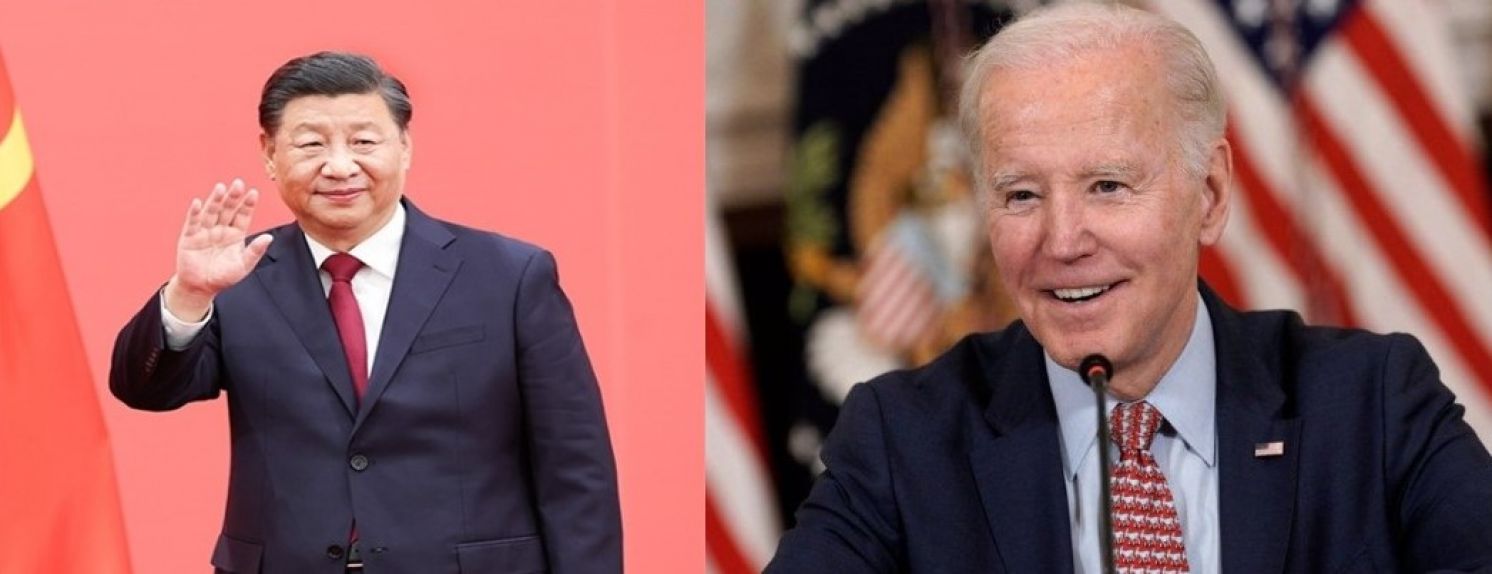
Pro-American and Maintaining Peace with China Not Mutually Exclusive
By Wang Chien-chuang
United Daily News, April 9, 2023
When former President Donald Trump of the United States appeared at a Manhattan court on criminal charges, President Joe Biden was in a meeting with his science advisors discussing the advantages and disadvantages of artificial intelligence at the White House. The New York Times described that this split screen showed the sharp contrast between the two American presidents.
The split screen showing two presidents also happened in Taiwan. When President Tsai Ing-wen traveled to New York and California for her transit diplomacy, former President Ma Ying-jeou was visiting five cities in mainland China for exchanges. They returned to Taiwan on the same day and both boasted about their achievements. President Tsai said what she had done was for the best of Taiwan; Mr. Ma said that the “1992 Consensus” has revived.
The United States and China are the two key countries in how the fate of Taiwan will play out. It was the first time in history that Taiwan’s current president and the previous president were separately present in the United States and China at the same time. For Taiwan’s national interests, this should have produced effects of “advancing separately and attacking jointly,” but instead the two sides decided to pour cold water on the other. No result of combined effects of pro-American and maintaining peace with China was formed.
Taiwan’s Mainland Affairs Council criticized Mr. Ma that he was manipulated by Communist China. Legislators of the ruling Democratic Progressive Party (DPP) ridiculed Mr. Ma as being taken advantage of in China. Is this the fact? During his visit in Mainland China, Mr. Ma uttered “Republic of China” (R.O.C) many times, and wrote the official year using the R.O.C. calendar on several occasions; he even referred to himself as the president of the R.O.C. and Taiwan’s president. Mr. Ma further cited the R.O.C. Constitution to say that both the “Taiwan area” and the “Mainland area” belong to us, the Republic of China. That was the first different voice on the mainland since the Communist Party established its regime in 1949. Professor You Ying-lung described that Mr. Ma feared no taboos and dared to say anything. He stated that what Mr. Ma did was tantamount to eating pork in front of Muslims, and was even a public provocation.
Mr. Ma’s disregard for taboos naturally was taboo for mainland Chinese media which obeyed the authorities. But DPP supporters did not act correctly when instead they criticized Mr. Ma as a coward and follower of China. Their name-calling against Mr. Ma is mistaken and excessive. Maybe they did not hear what Mr. Ma had said because they were dozing off.
DPP supporters severely blasted Mr. Ma’s visit to China as worthless but praised President Tsai’s transit extravagantly. They said that “the moment President Tsai met with Speaker Kevin McCarthy of the U.S. House of Representatives on American soil represents that Taiwan truly walked out into the world.” They hoped the “Kuomintang (KMT) can affirm President Tsai’s visit and thank members of the Congress for their warm hospitality towards President Tsai.” That is to say, in their eyes, the meeting between President Tsai and Speaker McCarthy not only was the moment for Taiwan’s walk towards democracy but also a great stride for Taiwan’s appearance on the world stage.
Is this a fact? Is there any correlation between Taiwan’s democracy and the president meeting with the American House speaker? Must Taiwan truly walk towards the world only through Speaker McCarthy? Why didn’t these people give then-Speaker Nancy Pelosi high praises when she visited Taiwan last year? Furthermore, Speaker McCarthy became the Speaker after 15 rounds of balloting, so his influence is far less than that of former Speaker Pelosi. DPP supporters extolled Speaker McCarthy as the savior of Taiwan’s fate, isn’t this too much?
President Tsai’s transit diplomacy and Mr. Ma’s visit are actually arrangements out of rational decision-making. It was possible that Mr. Ma could have met with Xi Jinping, but he chose to have a low-key visit under the guise of ancestral worshiping and youth exchange. If President Tsai had wanted to escalate U.S.-China-Taiwan tensions, why had she chosen to meet with Speaker McCarthy in California instead of Taipei? Although President Tsai and Mr. Ma were walking on parallel paths, it is praiseworthy that they had chosen to make low-key visits to the United States and China by adopting rational decision-making and self-restraint.
Moreover, being pro-American and maintaining peace with China are not mutually exclusive. President Emmanuel Macron of France and other leaders of the European Union have proven that it can be done without coming into conflict. Mr. Ma is a former president, and President Tsai will soon finish her tenure; if there is any achievement by their separate visits, the biggest significance is they have paved the way for their successors. They have proven that Taiwan can be as pro-American as President Tsai and maintain peace with China to the same extent as Mr. Ma. Being pro-American and maintaining peace with China is not like the difference between taking the high road and crossing the log bridge. They are not mutually exclusive.
The author is a visiting professor at Shih Hsin University.